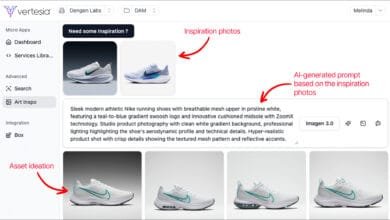Unlock Marketing Potential: How to Use an MCP Server

▼ Summary
– An MCP server (Model Context Protocol server) helps marketers integrate external tools and data sources to enhance marketing workflows.
– It enables data integration by connecting multiple platforms, providing a unified view of customer interactions and behaviors.
– MCP servers automate repetitive tasks like data entry and campaign management, improving efficiency and freeing up time for strategic work.
– They enhance personalization by using real-time data to segment audiences and deliver tailored content based on user behavior.
– MCP servers support advanced analytics and cross-team collaboration by centralizing data sharing and communication.
MCP servers are transforming how marketers integrate data, automate workflows, and deliver personalized customer experiences. These powerful tools act as central hubs, connecting disparate systems to streamline operations and unlock deeper insights. By bridging gaps between platforms, they eliminate manual processes while improving accuracy and efficiency across campaigns.
One of the most valuable applications is data integration, where MCP servers pull information from multiple sources—CRMs, ad platforms, analytics tools—into a single unified dashboard. This consolidated view helps teams spot trends, track customer journeys, and refine targeting strategies without jumping between systems.
Automation is another game-changer, reducing time spent on repetitive tasks like report generation or lead scoring. Instead of manually updating spreadsheets, marketers can set rules within the MCP server to trigger actions based on predefined conditions, freeing up resources for creative and strategic work.
Personalization reaches new heights when leveraging real-time behavioral data through an MCP server. Dynamic segmentation allows campaigns to adapt instantly based on user interactions, ensuring messages resonate at every touchpoint. Whether adjusting email content or serving tailored ads, this responsiveness drives engagement and conversions.
Advanced analytics capabilities turn raw data into actionable intelligence. Predictive modeling, attribution analysis, and performance forecasting become more accessible, helping teams allocate budgets effectively and measure ROI with precision.
Cross-department collaboration also improves since MCP servers break down silos between marketing, sales, and IT. Shared dashboards and automated alerts keep everyone aligned, ensuring campaigns run smoothly from ideation to execution.
For businesses aiming to stay competitive, adopting an MCP server isn’t just about efficiency—it’s about harnessing data to make smarter, faster decisions. The technology scales alongside growth, adapting to evolving needs while maintaining consistency across channels.
Looking for inspiration? Explore how AI-driven tools are reshaping landing page design and other marketing elements for even greater impact.
(Source: MarTech)






